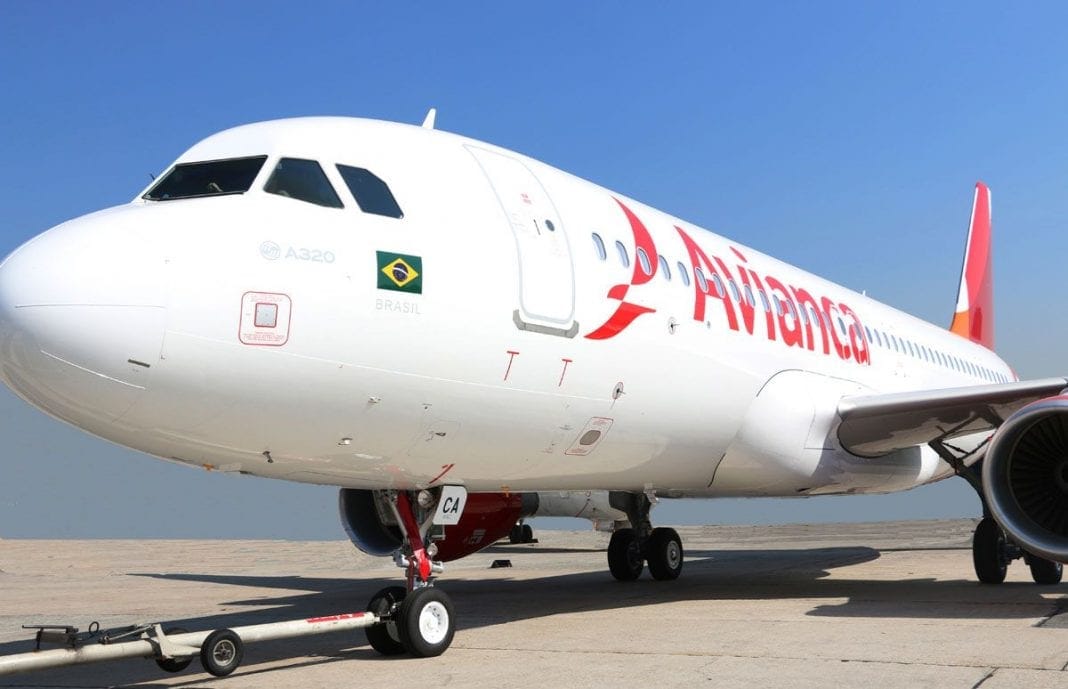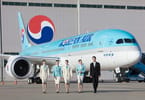Emirates Airline launched a new direct route to Boston last week, marking the eighth destination in the United States for the Dubai carrier as it continues to aggressively expand its network into the country.
At an event to celebrate the launch of the new route, the Emirates president Tim Clark told reporters about his vision for the airline, which now carries a million passengers a week across the world.
Most carriers would start flying to a new destination by flying just three times a week. Why has Emirates chosen to open this route with daily flights?
Unless there are over riding aero-political reasons that prevent us starting on a daily basis, we always start our routes on a daily basis. Particularly in the United States, if you don’t start on a daily basis, the trade distribution channels don’t take you seriously. So Boston is no exception to that whatsoever.
What will be the next US destination to open?
We’ve announced our next new route will be to Chicago on August 4th. That will be our ninth, and it won’t be our last of course. We have multiple points in the United States that we’re interested in flying to. And you’ll learn about those as we go through the next year or so.
What would it take for Boston to support A380 services?
In my own view I think this airport would take an A380 within a year. Judging by its start. Judging by the size of the markets that we are exploring. Judging by the feed that with our JetBlue partner we could work to possibly points to the Eastern side of the US. So I think possibly the A380 is something that could work quite well here.
Which markets will benefit the most from the launch of this service?
Making these non-stop, long-haul flights, the connectivity proposition is a fantastic one. So you could be in Dubai airport, which in itself is a beautiful place to be. We’ve spent so much money on it – we have three world-class terminals. But you can be there for two hours and be on your way again to Boston. So you could leave Perth, for instance, in Western Australia at 11pm and be on your way to Boston from Dubai at 9.45 in the morning and be in Boston at 3 o’clock in the afternoon as we’ve done today. There aren’t many hubs that offer that kind of connectivity on the scale that we do.
We are very close to Emirates’ publishing its 2013 financial results. What was your main achievement over the past year and what is your expectation for next year?
It’s been a better year than what we did a year earlier. In the last two years we have opened [routes to] 27 cities. We’ve taken on 44 aircraft. Many of those are A380s. In airline economic parlance to have grown your production, we’ve layered on two almost completely new international airlines and kept the profits growing and the cash growing and positive. That’s an incredible feat I have to say. Because in my aviation experience when you grow a business that quickly your cash starts to take hit. But you bank that, you say well look, to get here I’ve got to go down here. Well we never allow that to happen. We say we want profits, we want them quickly, we want the cash. So the high points of last year and the year before was the ability of the organisation to grow the business to the extent that we have, keep things profitable and cash positive and keep the balance sheet strong. And that’s what you’ll see at the end of this financial year.
How can you continue to grow so quickly and still maintain the same quality?
We can grow so quickly and retain the same quality because of scalability and the baggage that brings. If you’re not careful, particularly in our customer-facing business, you have to spend more time and money ensuring that your 20,000 cabin crew and all of your customer-facing staff on the ground are as equally aware of the criticality of the customer service offering as they were when we were 200 cabin crew. So our training organisations have a very high level of focus. Crew are brought back in, trained again. There’s a very high focus on training. We will react very quickly if we start to see slippage of standards. We measure that through customer reaction. Secondly we will spend an awful lot of time and money, far more than most, in constantly refreshing and reinvigorating the products that we offer. Again, to try and keep people on message that we’re a value proposition. It may be bigger televisions, it may be different types of food, it may be new baths and showers and whatever we put on the A380. This is all great fun. Keep them interested and that’s what we do. Scalability is an issue and everybody says that the bigger you get the worse it’s going to become. It’s because of that that we run a very flat structure. I have many reports and they know that me and my colleagues at the top work right the way down to the coalface. And I jump a mile if I start seeing things not going right. So there’s a kind of culture of excellence that permeates the company. I’m not saying we’re perfect all the time. We can’t be. We carry a million passengers a week at the moment. So some of them are going to be a little bit upset sometimes. But generally it’s a good story.
Are you facing problems with recruitment?
Certainly the Europeans or the Americans tend to look at their local labour market. Now the labour market in the 21st century is highly mobile. You’ll see movement of labour. They’re going where the jobs are. And people like us facilitate that. But for us recruiting of staff, whether it be an IT person, pilot, engineer, whatever, because we have a global source, it’s not a problem.
Where is Emirates facing problems?
Growth at the scale we do sometimes brings it’s own problems. We are trying to grow the Dubai hub as quickly as possible. There are areas of compression as a result of the flight movements. We have the air traffic control issues. The upper air spaces needs to be managed. So these are constraints on us that we’re working on with the [Dubai] Government and other governments in the UAE. Other points of concern are aero-politics. Emirates has become an extremely well-known global aviation brand. It’s now the number one airline brand in the world. That brings great kudos, but at the same time it brings problems because people are concerned about us so they try and block what we’re trying to do. And we spend time trying to deal with that.
India has agreed to raise its seat allocation to Dubai. Does that mean you are going to open new routes to India?
The Indian government calls the shots on that. They’ve given us 11,000 seats for Dubai, which of course has to be shared between Emirates and flydubai. We had asked for, I think, 30,000 seats and multiple points in India additional to what we have at the moment. But we didn’t get any of those. So we’ll have to carve up the cake the best we can. Don’t forget we had no [new] seats [allocated] since May 2008. So it’s 6 years since we had a single extra seat in India. We’re running at 90 per cent [capacity]. It’s such a pity. I don’t think we’ll be opening new routes to India in the immediate future.
Can you give us your predictions for the aviation industry in the Middle East over the coming 15 to 20 years?
Let’s assume that the geopolitics, the socio-economic factors at play in the Middle East do not constrain what is likely to happen. I think that [the aviation sector in the Middle East] will almost go nuclear if the hub carriers such as ourselves grow and the low-cost operators are allowed to grow. I think some of our European carrier friends have got their heads in the sand about that because it’s a honeypot. So for us it’s great.
WHAT TO TAKE AWAY FROM THIS ARTICLE:
- So the high points of last year and the year before was the ability of the organisation to grow the business to the extent that we have, keep things profitable and cash positive and keep the balance sheet strong.
- If you're not careful, particularly in our customer-facing business, you have to spend more time and money ensuring that your 20,000 cabin crew and all of your customer-facing staff on the ground are as equally aware of the criticality of the customer service offering as they were when we were….
- At an event to celebrate the launch of the new route, the Emirates president Tim Clark told reporters about his vision for the airline, which now carries a million passengers a week across the world.






















